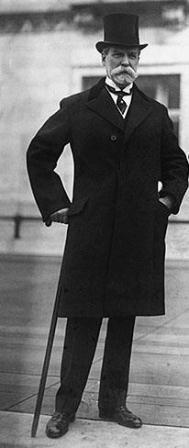22 November 1915
Lord Kitchener & General Staff, London - On 22 November, Kitchener telegrammed to the War Committee back in London to recommend a partial evacuation: he wanted to retain Helles to assist the Royal Navy in any future operations (they feared that a U-Boat base might be established in the Straits with access to dockyard facilities back at Constantinople) while evacuating only Anzac and Suvla. At the same time the General Staff had come to the same conclusion in a memorandum that read as follows.
 "The General Staff believed that, if all commitments in other theatres were reduced, a sustained effort on the Western front in the spring of 1916 would attain "a considerable and perhaps 'decisive success'. They suggested that the arguments of those in favour of remaining on the peninsula were mostly founded on conjecture or sentiment, whereas the arguments in favour of withdrawal were all based on "cold calculations of " military strategy". Evacuation, it was admitted, might certainly cost 50,000 men; but, if the troops who would otherwise be lost on the peninsula from battle casualties and sickness were taken into account, immediate withdrawal would make the Allies on the Western front 140,000 stronger in the spring of 1916 than if Gallipoli were held throughout the winter. Disinclined to believe that evacuation would jeopardize the safety of Egypt, the General Staff argued that the loss of British prestige would be far greater if we were eventually driven from the peninsula, or if, by remaining there, we ruined the chance of success in the West. If the Straits could still be opened "the result would be worth great efforts", but as this was apparently no longer possible the main object for which the campaign had been undertaken no longer_ existed. A force besieged in Gallipoli could neither contain large Turkish forces nor exert any influence on the course of events in the main theatre of war. So the General Staff recommended evacuation "with the possible exception of Helles".
"The General Staff believed that, if all commitments in other theatres were reduced, a sustained effort on the Western front in the spring of 1916 would attain "a considerable and perhaps 'decisive success'. They suggested that the arguments of those in favour of remaining on the peninsula were mostly founded on conjecture or sentiment, whereas the arguments in favour of withdrawal were all based on "cold calculations of " military strategy". Evacuation, it was admitted, might certainly cost 50,000 men; but, if the troops who would otherwise be lost on the peninsula from battle casualties and sickness were taken into account, immediate withdrawal would make the Allies on the Western front 140,000 stronger in the spring of 1916 than if Gallipoli were held throughout the winter. Disinclined to believe that evacuation would jeopardize the safety of Egypt, the General Staff argued that the loss of British prestige would be far greater if we were eventually driven from the peninsula, or if, by remaining there, we ruined the chance of success in the West. If the Straits could still be opened "the result would be worth great efforts", but as this was apparently no longer possible the main object for which the campaign had been undertaken no longer_ existed. A force besieged in Gallipoli could neither contain large Turkish forces nor exert any influence on the course of events in the main theatre of war. So the General Staff recommended evacuation "with the possible exception of Helles".
SOURCE:
C. F. Aspinall-Oglander, Military Operations Gallipoli, Vol. II (London: William Heinemann Ltd, 1932), p.427.
